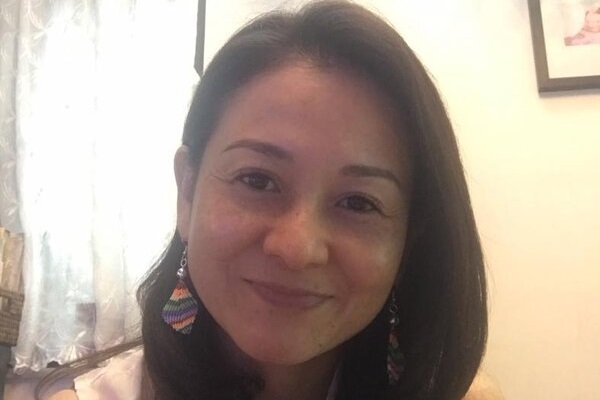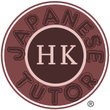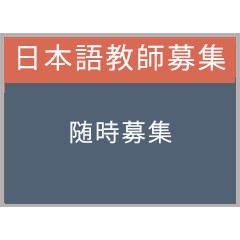Business Japanese Learning in Hong Kong
Native Japanese Tutor HARUKO

Native Japanese Teacher HARUKO
Japanese Teaching Experience 8 years
Native Language Japanese
Language Ability Native in English, CANTONESE
Born Tokyo – Japan
Teaching AreaSheung Wan, Central, Admiralty, Causeway Bay, Hong Kong Island, Kowloon
Teaching Japanese Japanese Mainly with English or Cantonese Supplementary
Japanese Courses Provided by Haruko
Hong Kong Native Japanese Tutor
Hello! My name is Haruko from Tokyo, Japan. I’ve been living in Hong Kong since 2005 and have 3 kids. Besides Japan, I’ve lived in Australia, Singapore and USA as a student. I’ve also picked up some Cantonese living in Hong Kong as well.
I have previously worked as a teaching assistant at the Japanese Supplementary school for over 5 years. Recently, I have been teaching private and semi-private lessons to children and adults. I enjoy teaching children and seeing them develop an interest in the Japanese language and the culture is a real joy. In my teaching, I can use English or some Cantonese when some explanation is needed, or speak entirely in Japanese if that is preferred.
I like to make lessons fun and interactive for younger children using songs, drawings, reading books and flashcards and introduce them to some Japanese culture. Then I will gradually add
on teaching from textbooks as they get older, covering grammar and structure of sentences. I am happy to teach beginner to intermediate level Japanese to adults as well and will cater my
lessons to the students needs. I look forward to meeting you!
こんにちは!香港在住17年のHARUKOと申します。小学から高校をオーストラリアとシンガポールで過ごし、大学時代は日本の英会話学校の受付アルバイトをするなど国際交流が大好きです。香港では日本人補習校で補助教員を5年以上担当させて頂きました。最近ではプライベートで日本語と英語を教えています。小さなお子様には日本語に興味を持ってもらう為にカードゲーム、絵本の読み聞かせ、絵描き歌、簡単なプリントを使って楽しくレッスンをしています。もう少し大きなお子様、そして大人の方にはテキストも取り入れた日本語学習をしています。生徒のニーズや興味に合わせたレッスンを組み立てています。日本語大好き!と思っていただけるようなレッスンをしていきたいと思ってます。
Japanese Teaching Approach
生徒のレベル・希望によって適宜
I will adjust my teaching according to the student’s Japanese level and requirements.
Ask Teacher Japanese Learning Questions
先生へ「~から~」と「~ので~」の違いについて教えていただけないでしょうか?
先生’s Answer:
「から」は「家から来た」「10時から始まる」などのように名詞+「から」で場所や時間の起点を表す場合と、
「美味しかったから」「楽しいから」のように動詞+「から」で理由づけをする場合とがある。
「ので」は「から」と違い、名詞+「ので」の使い方はしない。必ず動詞が前に入る。また、「から」の方が砕けた言い方で、初対面の相手やビジネスの場面では「ので」を使う。
先生へ「すごい楽しかった」と「すごく楽しかった」の違いについて教えていただけないでしょうか?
先生’s Answer:
正しくは後者。前者は正しい書き言葉ではないが、口語として一般的に使われている。口頭であっても、友達以外には後者を使うのが一般的で、友達以外に前者を使うのは若者のみ。社会人になって使うと教養がないとみなされる。
また、大人は前者も後者も口語で使うが子供は前者のみを使うんことが多い。(ただし、学校の作文などでは後者を使うことを学んでいる)
先生へ 「雨に降られた」と「雨が降っていました」と「雨が降りました」の違いについて説明してくれませんか?
先生’s Answer:
「降っていました」と「降りました」は明確に違って、「降っていました」はある行動をしていた最中にずっと続いて起こっていた場合、「降りました」は単に過去の一時点を説明する場合に使うので、「昨夜雨が降りました」のように、昨日、今朝、2週間前なののように時間の表現を合わせて使う場合がほとんど。日常会話で使ったり、ニュースなど以外で耳にすることはあまりなく、昨日や今朝などの時間の表現が一緒でも、「降っていました」を使うことが多い。
「雨が降っていました」と「雨が降りました」が自動詞であるのに対し、「雨に降られた」は他動詞。雨が降っていた事実は変わらないが、「雨が降っていました」と「雨が降りました」が雨が降ったかどうかの事実のみを伝えるのに対し、「雨に降られた」は何かをやろうとしている時あるいはやっている最中に雨が降ってきて残念だったり嫌なネガティブな気持ちが入る。誰かが「雨に降られた」と言ったら、「よかったですね」という人は皆無で、「残念でしたね」「大丈夫でしたか?」とネガティブ感情に同調するか、気遣いを見せる返答をする。
Ask Teacher Japanese Culture Questions
Japan New Year Eve
The most important event of the year for Japanese people is New Year. On the last day of December 31st = New Year’s Eve, the whole family will clean up the house so that the next year will have a fresh start and expectable. This is the same for the companies, they do a big cleaning on the day.
On New Year’s Eve, it is common for Japanese families to eat the traditional Toshikoshi soba, and watch NHK’s “Kohaku Uta Gassen”. Tokoshi soba is an ordinary soba, but it is easier to cut than other normal noodles, so it has the meaning of “cutting off the disaster troubles of the year.”
During New Year’s holidays, we eat festive dishes, which are long-lived festive dishes, the housewives can take a rest and go to worship in the hope of a happy and safe year.
日本人にとって一年で一番重要なイベントはお正月。年最後の12月31日=大晦日は、翌年一年が新たな気分で気持ちよく過ごせるよう、また良い気が入ってくるよう家族みんなで家中を大掃除し綺麗にする。これは企業でも同じで仕事納めの日に大掃除をする。
大晦日には家族で風物詩である「年越しそば」を食べ、NHKの「紅白歌合戦」を見る、というのが一般的。年越しそばは普通のお蕎麦であるが、他の麺より切れやすいことから「一年の厄を断ち切る」という意味合いが込められている。
お正月は主婦も休めるように日持ちのするお祝い料理であるおせち料理を食べ、一年の幸せや安全を願って参拝に行く。



Stay in Touch
RSS
Facebook
Twitter
Google +1